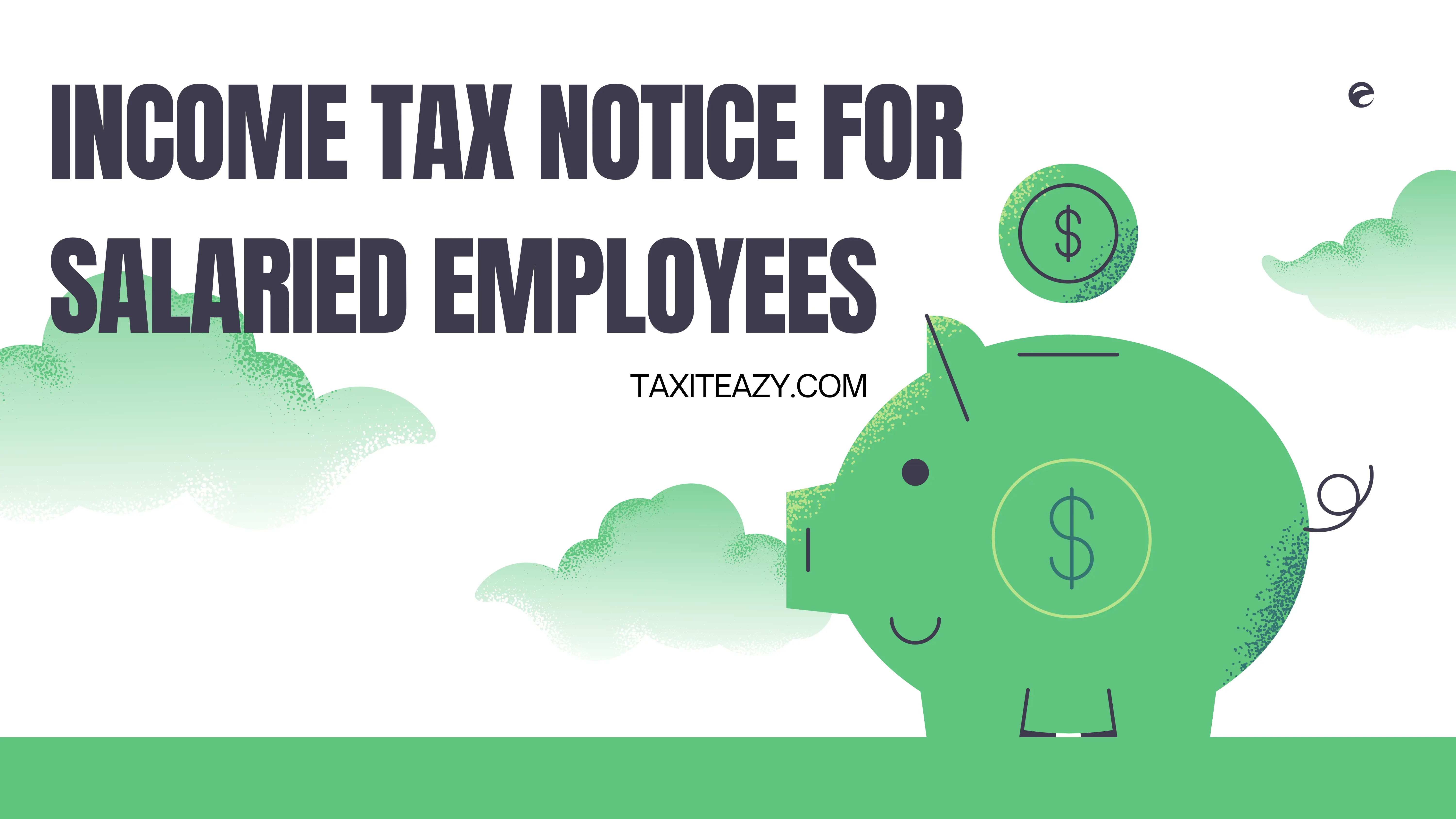
If you're a salaried employee who believes filing taxes is a simple process, think again. Even minor discrepancies can trigger an Income Tax Notice. This guide covers the types of notices, reasons they’re issued, and how you should respond effectively.
Table of Contents
What is an Income Tax Notice?
An Income Tax Notice is an official communication from the department, requesting clarifications, additional documents, or actions on your part due to inconsistencies in your ITR. Each notice comes under a specific section of the Income Tax Act, 1961.
Why Salaried Employees Get Notices
- Claiming excess deductions (HRA, 80C, etc.)
- Mismatch in Form 26AS or AIS vs ITR
- Late or non-filing of ITR
- Undisclosed income (FD interest, rent, freelancing)
- Foreign assets/income not declared
- Submission of fake receipts
Most of these issues are avoidable through careful compliance and accurate filing.
Types of Income Tax Notices
| Section | Purpose |
|---|---|
| 143(1) | Intimation after ITR processing – refund, tax payable, or no action |
| 143(2) | Scrutiny notice – detailed examination of return |
| 139(9) | Defective return – errors or omissions in ITR |
| 142(1) | Request for documents or reason for non-filing |
| 148 | Income escaping assessment – reassessment initiated |
| 156 | Demand notice – pay tax, interest, or penalty |
| 245 | Adjustment of old tax dues with current refund |
| 131 | Summon to appear or furnish evidence |
How to Respond to a Tax Notice
- Read the notice carefully to understand its purpose and deadline.
- Verify its authenticity via the income tax e-filing portal.
- Gather supporting documents like Form 16, 26AS, rent receipts, etc.
- Consult a tax expert for technical notices or scrutiny cases.
- Submit your response online and retain acknowledgment receipts.
- Check for follow-up communications on your email or SMS.
How to Avoid Income Tax Notices
- Always file ITR before the due date
- Declare all sources of income
- Cross-check your ITR with AIS, TIS, and 26AS
- Don’t submit fake receipts or inflated deduction claims
- Keep proof for all exemptions and deductions
- Don’t ignore previous notices
FAQs
Conclusion
Receiving a tax notice doesn’t mean you’ve done something wrong. Most times, it's a request for clarification or correction. Stay updated, respond smartly, and consider seeking help from tax platforms or a CA.



